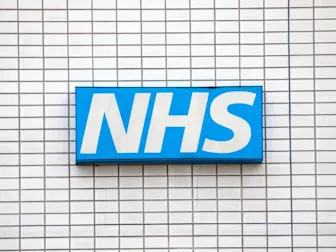The UK’s National Health Service (NHS) is receiving a £29bn ($39.1bn) funding boost, reflecting a 3% annual rise on current levels over the next three years to reach £226bn by 2029.
The majority of the funding, revealed by Chancellor of the Exchequer Rachel Reeves during the 11 June UK Spending Review, resonates with the Labour Party’s 'Plan for Change' manifesto and will go towards cutting NHS waiting lists, improving patient care, and modernising services.
Reeves revealed that the funding would also increase the NHS’s technology budget by almost 50%, with £10bn ($13.5bn) of the total funding earmarked to bring the "analogue health system into the digital age".
In response to the Spending Review, Steve Bates OBE, CEO of the UK BioIndustry Association (BIA), said the investments were a "huge vote of confidence" in the life sciences sector’s ability to drive economic growth.
“Investments into life sciences and AI will transform drug discovery and deliver greater NHS efficiency, the Health Data Research Service could make the UK the go-to destination for health innovation, while new funding for medicines manufacturing will help us attract internationally mobile investments to the UK and create well-paid rewarding jobs across the country,” said Bates.
“Greater operational freedom and budget for the British Business Bank will allow it to play an even greater role in boosting our venture capital ecosystem and complementing the Chancellor’s pension reforms to increase investment in Britain’s growth sectors. This is the critical element of the Chancellor’s Plan for Change that really must be delivered to the full, with no stone left unturned.”
Challenges ahead
However, Patchwork Health co-founder and CEO Dr Anas Nader stated that while the funding uplift will be “welcome support” to the NHS, “simply increasing funding without a clear strategy on where that money is going” won’t be enough to help the health service overcome the enormous challenges it faces.
Nadar said: “To create real change, this investment must be concentrated on implementing new technologies to unlock smoother, more efficient ways of working for clinicians and managers. This means ensuring systems are genuinely interoperable and making workers’ lives easier, not more complicated.
“That’s why, alongside the money earmarked for the NHS, I’m particularly interested to see more details of the government’s £86bn commitment to R&D."
RSM UK private healthcare head Suneel Gupta expressed similar concerns, warning that much of the boost will be “consumed by pre-existing pressures faced by the UK’s healthcare system”.
Gupta said: “It’s unclear exactly how and where they will spend this money.
“The additional funding must be used effectively, including towards greater collaboration between the private sector and the NHS, as well as investment in technology to deliver these objectives.
“It is key that progress is monitored closely to ensure they achieve an appropriate return on investment, and relevant parties are held accountable.”
The government’s plans follow last year’s Darzi report, an independent investigation into the state of the NHS in England carried out by Lord Darzi at the behest of health secretary Wes Streeting.
The report concluded that the NHS was in “serious trouble”, owing to an investment shortfall of £37bn – funds the report found would have been invested in the NHS if the UK had matched peer countries’ levels of capital investment in the 2010s.
"NHS to receive £29bn funding boost" was originally created and published by Clinical Trials Arena , a GlobalData owned brand.
The information on this site has been included in good faith for general informational purposes only. It is not intended to amount to advice on which you should rely, and we give no representation, warranty or guarantee, whether express or implied as to its accuracy or completeness. You must obtain professional or specialist advice before taking, or refraining from, any action on the basis of the content on our site.


